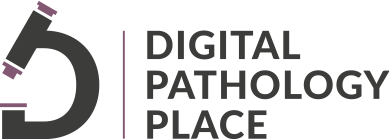
PATHOBIOLOGY: Mechanisms of Disease 2025
HIGHLIGHTS FROM THE PROGRAM CHAIR: ANDREI IVANOV, PHD
The scientific program for Pathobiology 2025 has been finalized and represents a dynamic and exciting lineup of basic, clinical, and translational research presented by both well-known senior and up-and-coming junior scientists. The program has been created by members of the ASIP Program Committee in collaboration with leaders of Scientific Interest Groups (SIGs). Pathobiology 2025 will also welcome the following guest societies: American Physician Scientists Association (APSA), Società Italiana di Patologia e Medicina Traslazionale/Italian Society of Pathology and Translational Medicine (SIPMeT), American Society for Matrix Biology (ASMB), The Histochemical Society (HCS), The Society for Cardiovascular Pathology (SCVP), and the Society of Toxicologic Pathology (STP).
The annual meeting includes symposia, workshops, and award lectures communicating cutting edge scientific sessions, commingled with educational and professional development sessions appealing to trainees and junior faculty. Reflecting the ASIP membership, there will be a strong emphasis on:
- Liver Pathobiology
- Mucosal Pathobiology
- Neuropathology
- Gene Expression
- Inflammation and Immunopathology
- Infectious Diseases
- Cardiovascular Biology
- Endothelial and Epithelial Barriers
- Cancer Pathobiology
- Fundamental Cell Biology
Here are a few highlights:
- Pathobiology 2025 will feature five meritorious award lectures. Dr. Fred Sanfilippo (Emory University) will deliver the Gold-Headed Cane Award Lecture, entitled The Importance of Mentorship in Career Development. Dr. Anindya Dutta will deliver the Rous-Whipple Award Lecture, entitled An Exploration of Noncoding RNAs and DNA Variants in Cancer. Dr. Pilar Alcaide will deliver the Outstanding Investigator Award Lecture, entitled T-cells at the Heart of Cardiac Remodeling. Dr. Alcaide’s lecture will double as the FASEB Excellence in Science Award Lecture. Dr. Onur Kanisicak (The Ohio State University) will deliver the Cotran Early Career Investigator Award Lecture, entitled The Fibroblast Odyssey: Journey from Bench to Bedside. Dr. Nakisha Rutledge will deliver the Young Scientist Leadership Award Lecture, entitled Leveraging the Frontline: Targeting Innate Immunity for Vaccines and Therapies.
- The President’s Symposium, organized by Dr. Paul Monga, is focused on the important role of the Wnt/β-catenin pathway in tissue development, homeostasis, and disease. This session features speakers that will present advances in the understanding of the Wnt signaling pathway in various aspects of organ pathophysiology and targeting this pathway for innovative therapeutics.
- Two major sessions will focus on liver pathobiology. The first of these will focus on the gut-liver-axis that plays a significant role in the pathogenesis of metabolic dysfunction associated steatotic liver disease (MASLD) and alcohol-associated liver disease (ALD). Key investigators in the field will discuss the mechanisms that alter the gut-liver communication and lead to liver injury. The second symposium will focus on understanding the pathogenesis of liver cancer. This session features experts who utilize zebrafish models to unravel the molecular underpinnings of HCC for identifying and targeting key oncogenic pathways. Both of these sessions will also include abstract-driven short talks from trainees or young investigators.
- Several sessions will focus on inflammation and immunopathology. The Ocular Pathobiology SIG is collaborating with the Vascular and Mucosal Pathobiology SIG to present a session on inflammation in vascular pathologies that will focus on the role of cells and cytokines. A second session will feature talks on the role of specialized pro-resolving mediators in the healing of inflammation in various disease states. A third session will provide insights into various aspects of innate and adoptive immunity in inflammation, including adopted behavior, heterogeneity, cellular crosstalk, and functional implications of innate and adoptive immune cells to disease progression. Finally, a session will be focused on tissue fibrosis, which is a major complication of chronic inflammatory disorders. This session will feature world leading experts discussing common and unique mechanisms of fibrogenesis in different organs.
- The Mucosal Pathobiology SIG will present a session on novel molecules and mechanisms in the regulation of epithelial and endothelial barriers. This session will focus on recent advances in the understanding of the structure and regulation of epithelial and endothelial junctions in different tissues, with a specific emphasis on the mechanisms and pathophysiologic implications of junctional disruption in human diseases. This session will also include abstract-driven short talks from trainees or young investigators.
- The Infectious Disease SIG will present a session on diverse models for studying microbial-host interactions, exploring the intricate relationships between bacteria and host, focusing on how these interactions influence health and disease. The discussion will include three main models that are employed in cutting-edge research, including zebrafish, mice, and human stool bioreactors. This session will also include abstract-driven short talks from trainees or young investigators.
- Several multidisciplinary sessions will focus on cancer. The Gene Expression SIG will present a session on chromatin remodeling and epigenetics in cancer. This session will explore the role of epigenetics in the development of cancer, with a focus on chromatin remodeling complexes. The Tumor Microenvironment and Metastasis SIG will present a session on therapeutic targeting of the metastatic niche in cancer with perspectives from premalignant lesions to malignant disease. This session will explore current basic and translational research that focus on different stages of the metastatic cascade and emerging therapies that seek to redefine the treatment modalities. In addition, The Education Committee has organized the Pathobiology for Basic Scientists course on the topic of cancer vascularization.
As members of the investigative pathology community, your participation in Pathobiology 2025 is a critical part of the Society’s success. We invite you to join us in staying abreast of leading scientific research in deciphering the pathways of health and pathology that will lead to disease diagnosis, prevention, and treatment.
RELATED CONTENTS
- Digital Pathology 101 Chapter 4 | Digital Pathology Applications
- PathPresenter a tool to make killer pathology presentations and much more w/ Rajendra Singh, MD
- European Congress on Pathology 2024
- Accelerating custom design of AI image analysis algorithms for drug development using transfer learning w/ Sylvain Berlemont, Keen Eye
- What is the current role of Artificial Intelligence in digital pathology? Part 1 – terminology.













Comments are closed.